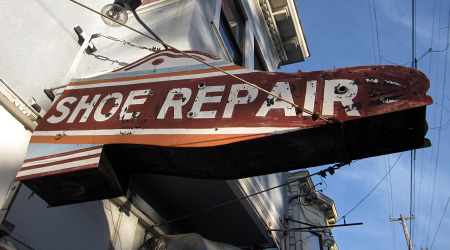Tips On Credit Repair

A clean credit report is crucial for taking advantage of loans and credit card offers at reasonable interest rates. There are two primary factors which affect the quality of a credit report which are black marks resulting from missed payments or legal judgment and inaccuracies or other incorrect information reported by lenders. Below are some of the most common and effective tips on credit repair which can be implemented with little to no cost and a few hours of your time.
Tip #1 - Get Your Free Credit Report
As the saying goes you can't fix it if you don't know it's broke so the first thing you need to do is get a free copy of your credit report. Federal law requires each of the three major credit reporting agencies to provide one credit report for free to consumers every 12 months. You can go to www.annualcreditreport.com or call 877 - 322 - 8228 and request a credit report over the phone. Once you have a copy of your free credit report you can see what needs to be addressed and check for inaccurate information.
Tip #2 - Remove Inaccuracies
Over 40% of all credit reports have inaccurate or incorrect information provided by lenders. This can include missed payments that were actually made on time for the correct amount or outstanding balances that have been paid in full. If you find any inaccuracies, fill out the online form provided by the credit bureaus detailing what is wrong and why it should be removed. By law, the credit reporting agencies must respond to all claims within 30 days of receipt and either correct the information or explain why it is staying.
Tip #3 - Debt Utilization Ratio
The debt utilization ratio is a percentage of how much debt is being used relative to how much credit is available. Lowering the debt utilization ratio removes a primary red flag when applying for credit which concerns a consumer being overextended. Borrowers with high ratios have increased levels of default and bankruptcies especially if they are maxed out on multiple credit cards. Having a low ratio shows potential and existing lenders financial responsibility and good decision making.
Tip #4 - Stop Missing Payments
Many consumers consider missing a credit card payment or two as no big deal. This couldn't be further from the truth since missed payments shows a lack of personal responsibility and inability to adhere to agreed upon loan terms. The easiest way to start repairing credit is to start making payments on time for the correct amount for a period of years. This shows an ability to manage finances and budget when paying back obligations which encourages other lenders to extend credit like mortgages and auto loans.
Tip #5 - Advice Going Forward
Don't view credit repair like a diet to lose weight. Many consumers will take steps to get excessive debt under control and clean up the credit only to fall back into the same bad habits which got them there to begin with. Long-term credit repair requires adjusting personal behaviors such as controlling spending and paying back loans on time. It may be beneficial to speak with national nonprofit credit counseling organizations which can offer additional advice and additional tips on credit repair.







